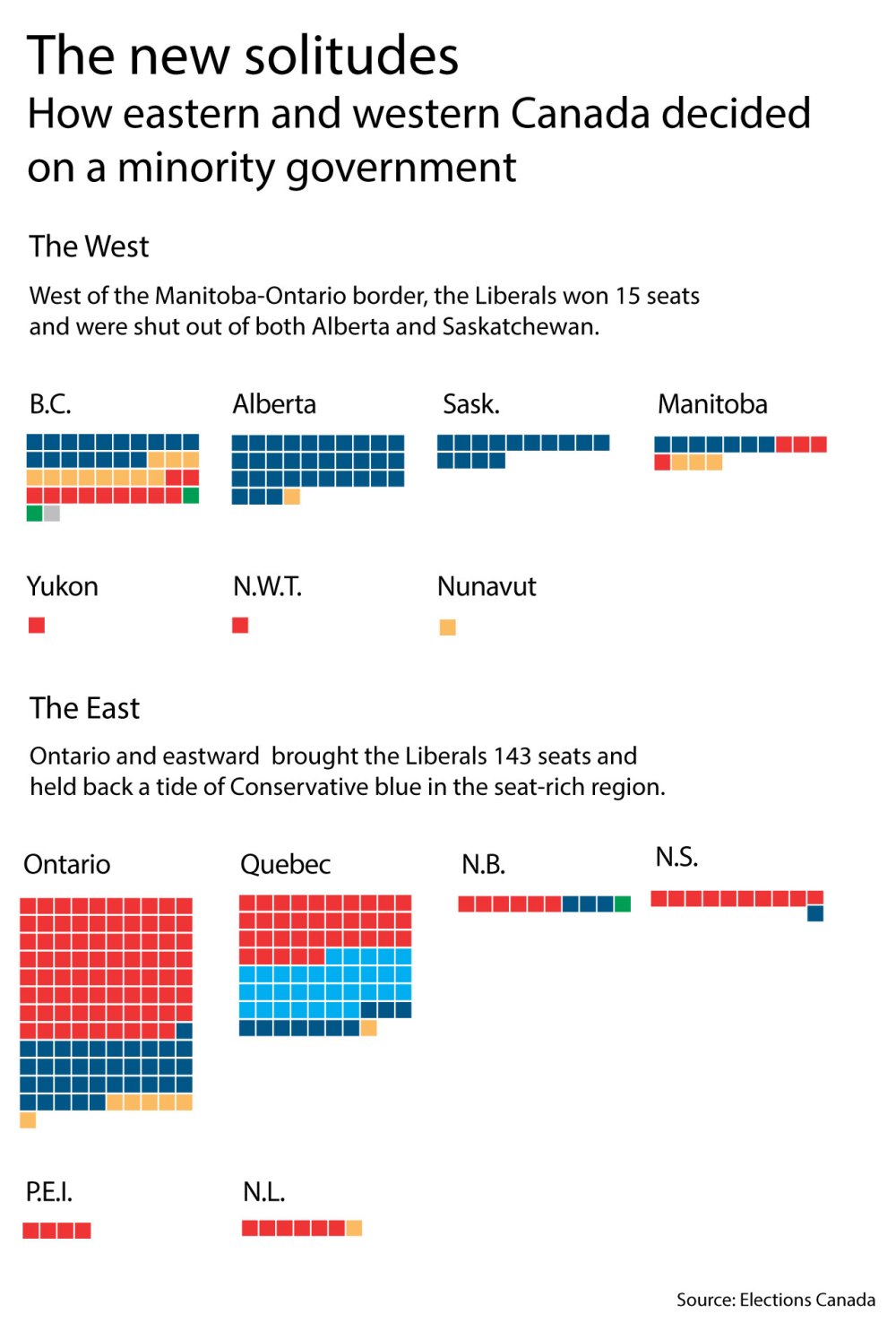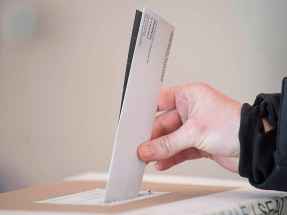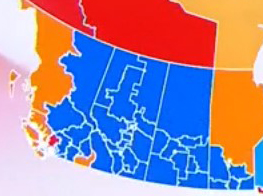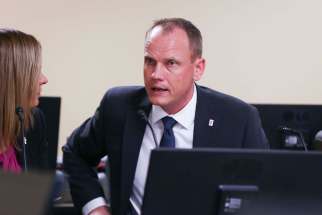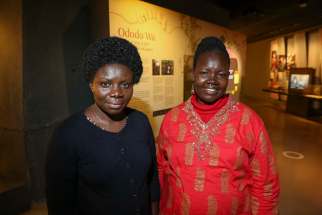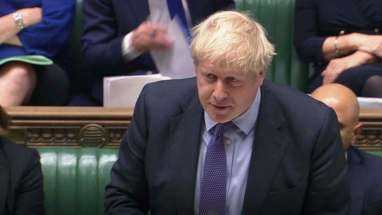Stark political divide makes conciliation a priority; Canada’s future depends on it
Read this article for free:
or
Already have an account? Log in here »
To continue reading, please subscribe:
Monthly Digital Subscription
$0 for the first 4 weeks*
- Enjoy unlimited reading on winnipegfreepress.com
- Read the E-Edition, our digital replica newspaper
- Access News Break, our award-winning app
- Play interactive puzzles
*No charge for 4 weeks then price increases to the regular rate of $19.00 plus GST every four weeks. Offer available to new and qualified returning subscribers only. Cancel any time.
Monthly Digital Subscription
$4.75/week*
- Enjoy unlimited reading on winnipegfreepress.com
- Read the E-Edition, our digital replica newspaper
- Access News Break, our award-winning app
- Play interactive puzzles
*Billed as $19 plus GST every four weeks. Cancel any time.
To continue reading, please subscribe:
Add Free Press access to your Brandon Sun subscription for only an additional
$1 for the first 4 weeks*
*Your next subscription payment will increase by $1.00 and you will be charged $16.99 plus GST for four weeks. After four weeks, your payment will increase to $23.99 plus GST every four weeks.
Read unlimited articles for free today:
or
Already have an account? Log in here »
Hey there, time traveller!
This article was published 22/10/2019 (2246 days ago), so information in it may no longer be current.
If you draw a line at the Manitoba-Ontario border and compare the results from Monday’s federal election, the contrast is startling. The governing Liberals lost the popular vote in every province west of that line. Yet they won the most votes in every province east of it.
Out of 104 seats west of the border (close to a third of the seats in the country), the Liberals won only 15, or 14 per cent. They were shut out in two of four western provinces. Liberal stalwart and longtime former cabinet minister Ralph Goodale was punted from his Regina-Wascana seat. Likewise, Conservative deputy leader Lisa Raitt, a shining star in the Conservative caucus, was defeated in her Ontario riding of Milton.

!function(e,i,n,s){var t=”InfogramEmbeds”,d=e.getElementsByTagName(“script”)[0];if(window[t]&&window[t].initialized)window[t].process&&window[t].process();else if(!e.getElementById(n)){var o=e.createElement(“script”);o.async=1,o.id=n,o.src=”https://e.infogram.com/js/dist/embed-loader-min.js”,d.parentNode.insertBefore(o,d)}}(document,0,”infogram-async”);
It’s almost like two different countries.
One side, for the most part, chose a fiscally conservative party that pledged to balance the books, cancel the carbon tax, build pipelines and turn Alberta’s disastrous economy around. The other side chose perennial government deficits, a higher carbon tax, no new pipelines, and were largely indifferent to the plight of Alberta.
One side objected to a prime minister who politically interfered in the criminal prosecution of a multinational corporation. The other side didn’t care.
The East voted to further socialize Canada’s health-care system through a national pharmacare program. The West chose to preserve the right of people to buy their own prescription drug coverage while maintaining provincial pharmacare plans for those in need.
Not everyone who voted Liberal or Conservative fell into such a neat, cookie-cutter mould. It’s not that simplistic. But the contrast between the East and the West was so profound in this election, it should be a major concern for all Canadians.
The contrast between the East and the West was so profound in this election, it should be a major concern for all Canadians.
There is an antidote for this. Prime Minister Justin Trudeau could take a more conciliatory tone and work collaboratively with other parties; not only with the NDP or the Bloc Quebecois, but the Conservatives, too. In fact, he must.
That’s not easy to do in Parliament’s combative environment, where parties almost always put their own interests ahead of anything else. But something has to give.
Every party leader — save for the Bloc Quebecois’ Yves-François Blanchet — wants to be prime minister, or wants to retain that title. Everything they do revolves around trying to achieve that goal. Most people get into politics because they want to be in government. It’s good to be king and everybody in politics wants to be king. That may seem cynical, but it’s reality.
Most politicians speak in platitudes about rejecting division and negativity. However, they don’t adhere to that principle. Their real goal is to win power at almost any cost.
There are exceptions to that rule. But we need to see more of those exceptions, from all parties, including Conservatives in the West. It’s unrealistic to expect any party to set aside their overarching goal of wanting to occupy the Office of the Prime Minister. But for the sake of Canadian unity, that basic instinct has to be tempered.
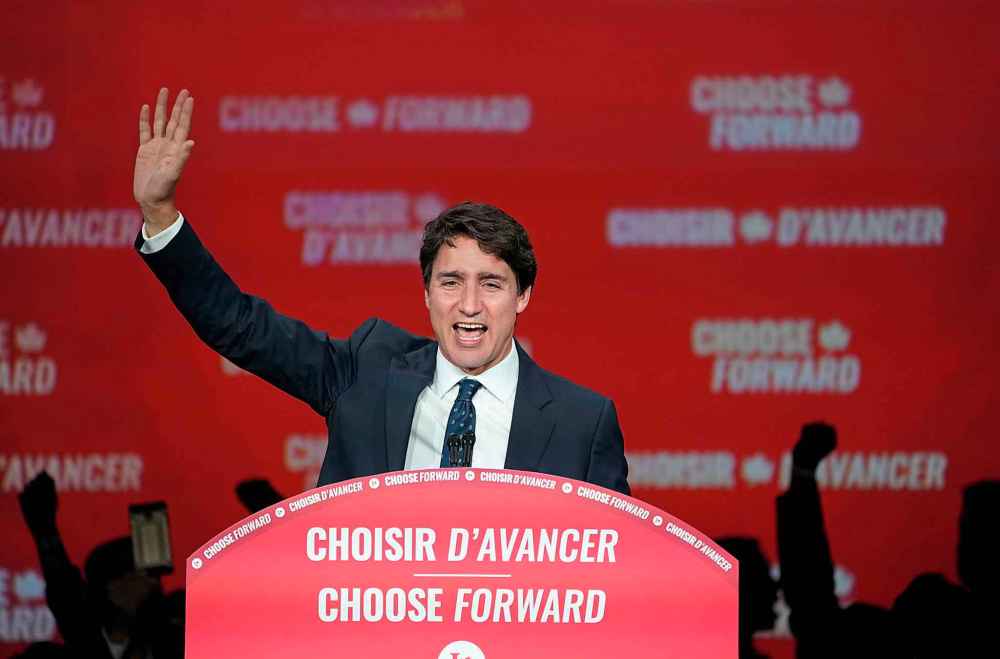
There’s no road map to follow in order to get there. Politicians are wired to tear each other apart. We saw that in spades in this election. But Canada is facing some serious challenges, particularly in Alberta, a province whose wealth Canadians have relied upon for decades to fund front-line services such as health care, education and social services.
Oil has to get to market. Pipelines need to get built. Parliament has to figure out how to do that. And the prime minister should be having multiple meetings with western premiers and Indigenous leaders to get the job done.
Practical solutions to address climate change, including adaptation, also need to be pursued. But those must be balanced with the economic needs of the West. For the sake of Canadian unity, the vilification of Alberta’s economic priorities has to end. The anti-oil hysteria has to be curbed.
Canada is facing some serious challenges, particularly in Alberta, a province whose wealth Canadians have relied upon for decades to fund front-line services such as health care, education and social services.
That leadership can’t come from Trudeau alone. But it has to start with him. He’s the prime minister. It has to be followed by other party leaders and premiers. The constant sniping, self-serving attacks and negativity will only deepen the divisions we saw on election night.
Other than Blanchet, each leader wants to be the prime minister of Canada. But if they’re not careful, there may not be much of a country left to govern.
tom.brodbeck@freepress.mb.ca

Tom has been covering Manitoba politics since the early 1990s and joined the Winnipeg Free Press news team in 2019.
Our newsroom depends on a growing audience of readers to power our journalism. If you are not a paid reader, please consider becoming a subscriber.
Our newsroom depends on its audience of readers to power our journalism. Thank you for your support.
History
Updated on Wednesday, October 23, 2019 12:52 PM CDT: Removes incorrect popular vote graphic.
Updated on Wednesday, October 23, 2019 2:21 PM CDT: Adds corrected popular vote graphic.

